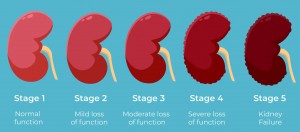What is kidney failure?
Kidney failure is a serious disease that occurs when the kidneys lose their ability to effectively filter waste and excess fluid from the blood. This damage can lead to a buildup of toxins in the body, which can have serious health effects.
The kidneys play a vital role in maintaining the body’s overall health by regulating electrolyte levels, blood pressure, and red blood cell production. When kidney failure occurs, these functions are compromised, causing a range of symptoms. Common symptoms include fatigue, swelling of the legs and ankles, shortness of breath, and changes in urinary patterns, such as decreased urination or blood in the urine.
Kidney failure can be divided into two main types: acute and chronic. Acute kidney failure usually occurs suddenly due to injury, infection, or severe dehydration. Sometimes it can be reversed with prompt treatment. Chronic kidney failure, on the other hand, develops gradually over time, often due to an underlying condition such as diabetes or high blood pressure. This type is usually irreversible and may progress to end-stage renal disease, requiring dialysis or a kidney transplant.
Diagnosis of kidney failure usually involves blood tests to measure creatinine and blood urea nitrogen (BUN) levels, and urine tests to assess kidney function. Imaging studies, such as ultrasound, may also be used to evaluate the structure of the kidneys.
Managing kidney failure involves addressing the underlying cause, making lifestyle changes, and possibly undergoing treatments such as dialysis. Early detection and intervention are critical to improving outcomes and maintaining quality of life for patients affected by this disease. Understanding kidney failure is crucial to recognizing its symptoms and seeking prompt medical care.
We Baysen medical focus om diagnostic techniques to improve the quality of life . We develop home rapid test Urine Microalbumin for ealy screening Kidney failure
Post time: Oct-28-2024
